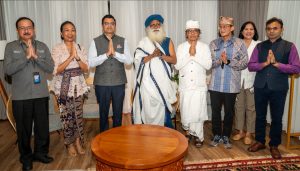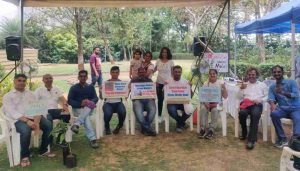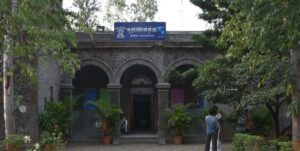Translations bridge gaps between Cultures – Dr. Alida Allison
· Bhaashaa Foundation’s International conference on multilingualism begins
December 16, 2016: Translated literature helps in bridging the gap between nations and cultures. However, it is important to convey right historical references and connotations through them said Dr. Alida Allison, Professor of English and Comparative Literature, San Diego State University.
She was a keynote speaker at the inaugural session of an International Conference: Society, Literature and Multilingualism in Pune. This conference has been conducted as a part of Katha Yatra, organised by Bhaashaa foundation in association with Sahitya Academy.
Dr Allison was accompanied by Uma Kulkarni, eminent translator, Sangeeta Bahadur, an Indian diplomat and author and Swati Raje, Founder and President, Bhaashaa Foundation.
While explaining the importance of translations and how children’s literature introduces two cultures to one another, Dr Allison referred to Chinese writer Cao Wenxuan, Polish born Yiddish writer Isaac Bashevis Singer and India-British writer Salman Rushdie. “When we refer to writers like Wenxuan or Rushdie, we realise different nuances of Chinese or Indian culture respectively. Readers from different part of the world can relate to them,” she said.
She further added that it is of utmost importance to get the connotations and historical context of the literature while doing the translations. “Wrong connotations or context can completely change the meaning and impact of the literature. Translations must convey all the emotions and subtext that the original writer has poured in his creation,” she said.
While emphasizing the need of multilingualism in the context of globalization, Bahadur said, “Each language has characteristics that defines the various cultures and people. The very first thing that define each and every one of us is our mother tongue or language.” she further added that multilingualism is part of Indian culture and it should be protected on the backdrop of globalisation. “The globalisation has flattened the multilingual culture of India, it should be protected and encouraged in the coming years,” she said.
The discussion was followed by an interview with Kulkarni conducted by Raje. Kulkarni who has translated 55 Kannada books in Marathi explained her journey as a translator. “I am not aware of the science and theory of translation. Interactions with writers and my experiences has made me better at translations. But I emphasize on understanding the connotations and words carefully as their meaning differ according to regions,” she said.
Raje in her introductory speech explained the journey of 9 years of Bhaashaa Foundation. She further highlighted the importance of multilingualism, she said, “We get introduced to many languages in our life through education, traveling and cohabiting with various people. That is why understanding various aspects of multilingualism is very important. We are trying to focus on it through this international conference,” she said.
Uljawala Tathe, anchored the discussion while Dr. Savita Kelkar delivered the vote of thanks.
This discussion was followed by various sessions on related subjects such as Multilingualism in Music, Multilingualism in Children’s literature, Soil to Overseas, Media and Multiculturalism, Challenges and Multilingualism. The discussion sessions saw the participation of noted scholars, writers and language experts from various background.






